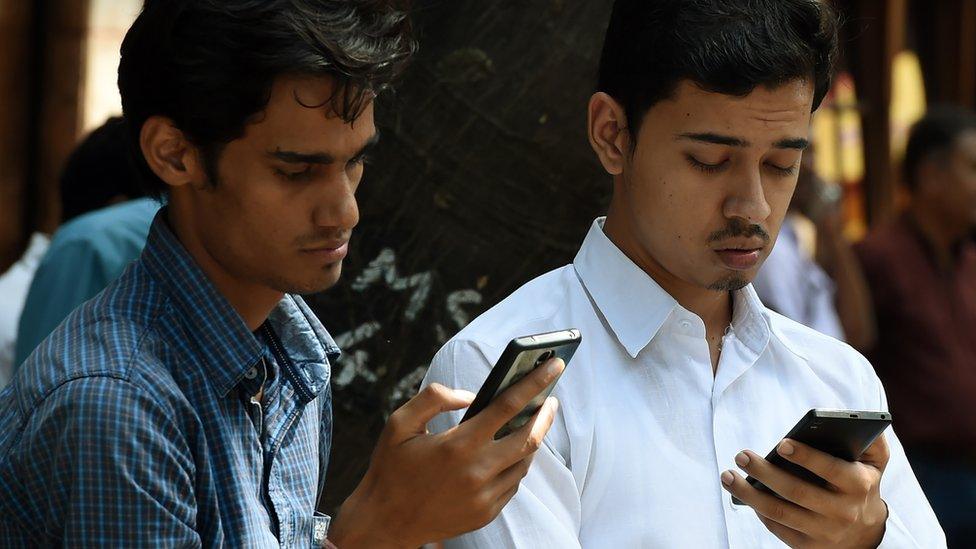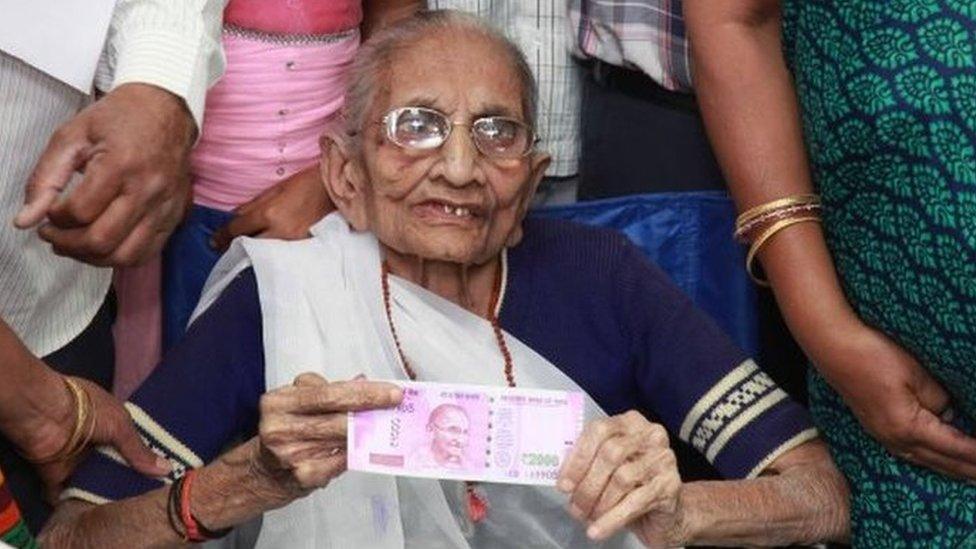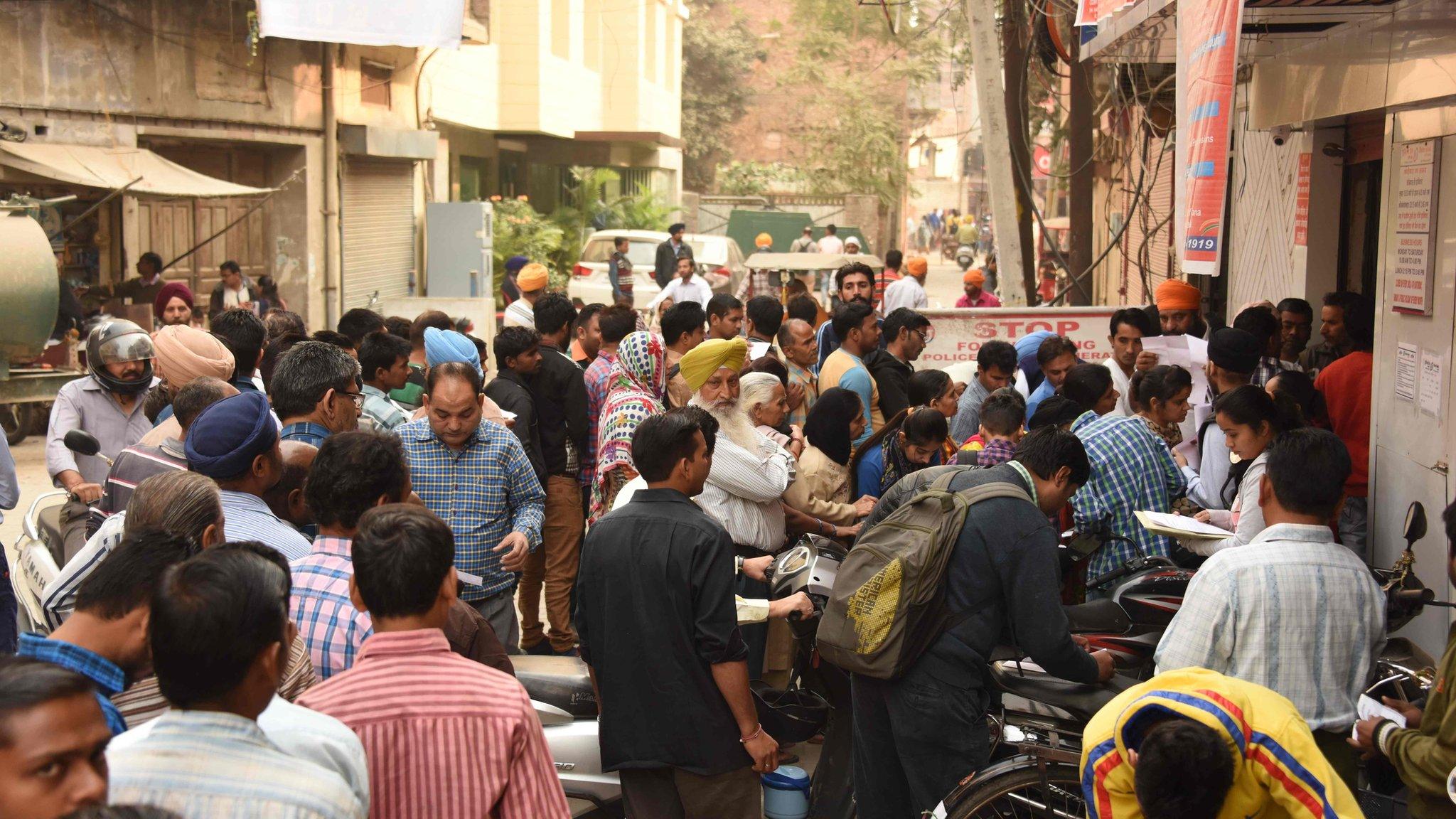India mobile payments surge after shock banknote move
- Published

India's surprise move to get rid of big banknotes may have sparked a nationwide cash crunch, but it has proved a boost for mobile payment firms.
The country's largest digital wallet firm, Paytm, logged a record of over seven million transactions on Saturday.
The loss-making firm is valued at about $5bn (£4bn) and backed by Chinese e-commerce giant Alibaba.
Paytm claims to have 150 million users while its nearest rival MobiKwik has 35 million.
Both companies have seen a surge in new users signing up.
This comes after the move by Indian Prime Minister Narendra Modi earlier this month to abolish 500 and 1,000 rupee notes, which essentially wiped out 86% of the country's cash.

Sameer Hashmi, India business reporter
Ever since the currency crisis started in India, many people in cities such as Mumbai are looking at cashless modes of payment.
The problem, however, is that despite fast growth, mobile payments are still at an early stage of adoption. And credit cards are still not accepted at many places.
Like many Indians, I have been preserving the limited cash I have and trying to use my credit card and smartphone to make payments.
It's been easy to order food from restaurants, pay for utilities (electricity and phone bills), shop in malls and book movie tickets without using any of the precious cash I am left with. However, it's still difficult to buy vegetables or hail an autorickshaw (local tuk tuk) or pay the maid that cleans my house without shelling out hard money.
In the past week I have spotted quite a few roadside shops with signs stating that they accept mobile payments, but the number is still small.

Mobile payments firms have been marketing their services aggressively as people struggle to deal with a sudden cash crunch.
Even small-scale retailers such as fruit and vegetable market traders have started to sign up for the services.
Many economists and even Microsoft founder Bill Gates have welcomed Mr Modi's initiative, which is aimed at wiping out corruption.
- Published15 November 2016

- Published14 November 2016
- Published12 November 2016
